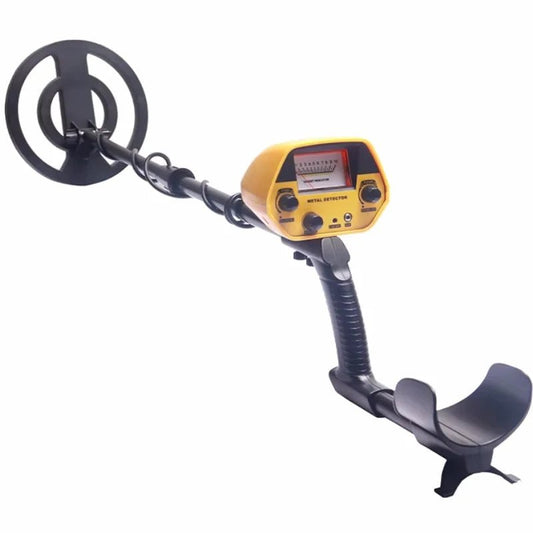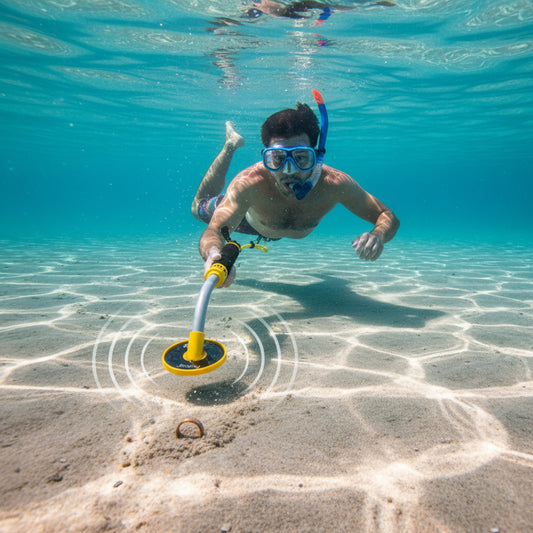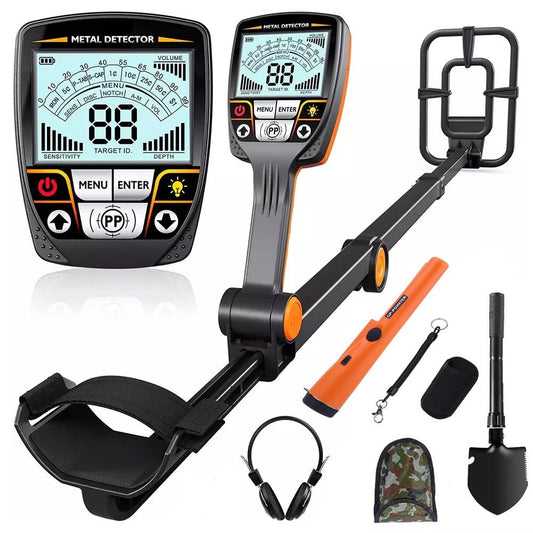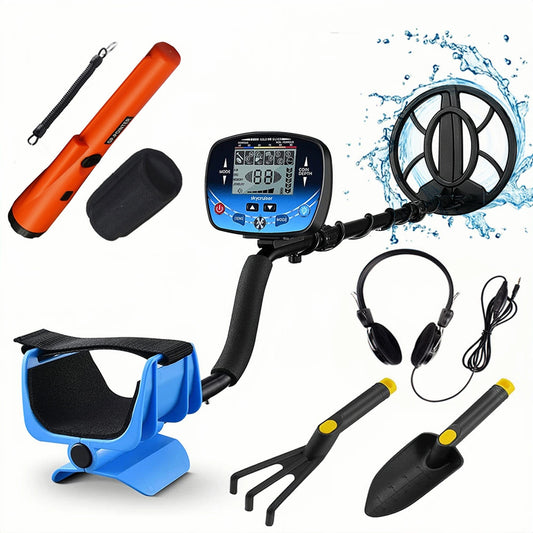
Metal Detecting in Egypt: Beach Detecting, Customs, and Legal Hurdles
Share
Egypt, with its legendary history and stunning Red Sea and Mediterranean beaches, is a tempting destination for metal detecting enthusiasts. However, strict regulations, customs hurdles, and the country’s focus on protecting its archaeological heritage make Egypt one of the most challenging places for hobbyists.
This guide covers what’s allowed, what’s banned, and how to enjoy beach metal detecting in Egypt without legal trouble.
Is Metal Detecting Legal in Egypt?

Metal detecting in Egypt is highly regulated. The use of metal detectors is generally prohibited without official permission from the competent authorities, especially for archaeological or gold prospecting purposes. The country’s strict laws are designed to protect its immense cultural and historical wealth.
Key legal points For Metal Detecting in Egypt:
Permit Required: You must obtain official permission from the Ministry of Tourism and Antiquities to use a metal detector anywhere in Egypt.
Archaeological Sites: Detecting for antiquities or on any archaeological site is strictly forbidden and can result in severe penalties, including imprisonment.
Gold Prospecting: Gold detectors and prospecting are only allowed with special permits, usually reserved for licensed mining companies or scientific research.
Beaches: Recreational metal detecting on public beaches may be tolerated in some cases, but you should always seek explicit permission from local authorities or hotel management, especially when detecting on private or resort beaches.
Customs: Bringing a metal detector into Egypt without a permit can result in confiscation at the border, fines, or even criminal charges.

Customs Regulations: Bringing Metal Detectors into Egypt
Egyptian customs are particularly strict regarding metal detectors. Travelers are often stopped, and detectors may be confiscated if you do not have the proper paperwork.
What you need to know:
- Declaration: Always declare your metal detector at customs and present any permits or letters of permission.
- Separate Packing: Some travelers recommend packing the detector and coil separately to avoid suspicion, but this is not a guarantee of clearance.
- Prohibited Items: Metal detectors are on the list of items prohibited for use without a permit. Attempting to import one without documentation can lead to legal issues.
- Other Restricted Items: Drones, antiques, and certain electronics are also tightly controlled, so check the latest customs regulations before traveling.
Beach Detecting in Egypt: What’s Allowed?
While Egypt’s laws are strict, there is some tolerance for recreational metal detecting on certain public beaches, especially if you are searching for modern lost items (like jewelry or coins) and not antiquities.

Best practices for Metal Detecting Egypt Beaches:
Ask Permission: Always check with local authorities, lifeguards, or hotel management before detecting on any beach.
Avoid Archaeological Areas: Never detect near ancient ruins, marked archaeological zones, or historic landmarks—even if they are on the coast.
Stay in Public Areas: Stick to busy public beaches and avoid protected areas, nature reserves, or national parks.
Private and Resort Beaches: Many hotels may allow detecting on their private beaches, but you must ask for permission first.
Report Finds: If you accidentally discover anything that could be an antiquity, do not remove it. Report it to the authorities immediately.
Check out our article about the best tips and advices for beach metal detecting.
Legal Hurdles and Risks

Egypt is one of the strictest countries in the world when it comes to protecting its heritage. The penalties for illegal metal detecting or attempting to export artifacts are severe:
Fines and Imprisonment: Unauthorized use of a metal detector, especially for archaeological purposes, can result in jail time.
Confiscation: Customs and police can confiscate your detector and any finds, even if you had no ill intent.
Criminal Charges: Attempting to export artifacts, even small items like coins or pottery, is a criminal offense.
Safety and Responsible Detecting Tip

Travel Light: Only bring a detector if you have written permission or a clear understanding with local authorities.
Stay Safe: Egypt’s beaches are generally safe, but avoid isolated areas and always be aware of your surroundings.
Be Discreet: Use your detector respectfully and avoid drawing attention, especially in sensitive areas.
Respect the Environment: Fill your holes, remove trash, and leave the beach as you found it.
Stay Informed: Laws and enforcement can change. Always check the latest regulations before your trips.
What Can You Find?
If you are permitted to detect, expect to find:
- Modern coins (Egyptian pounds, foreign currency)
- Jewelry (rings, bracelets, necklaces)
- Watches, sunglasses, and small electronics
Occasional tokens or trinkets lost by tourists

Never attempt to keep or export anything that appears old, valuable, or potentially historic.
Conclusion
Metal detecting in Egypt is possible, but only with proper permits and by following strict rules. Recreational beach detecting may be allowed in some areas, but always ask for permission and never search for or remove antiquities.
Customs are vigilant, and the penalties for breaking the law are severe. If you’re determined to detect in Egypt, do your research, get the right paperwork, and focus on enjoying the country’s beautiful beaches and rich culture—legally and respectfully.




